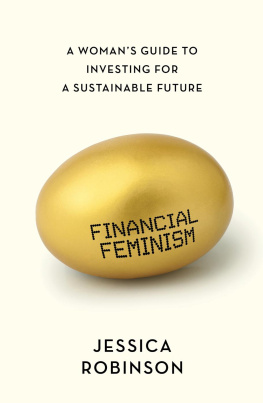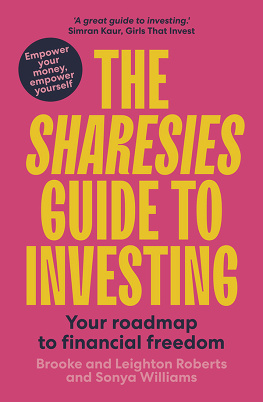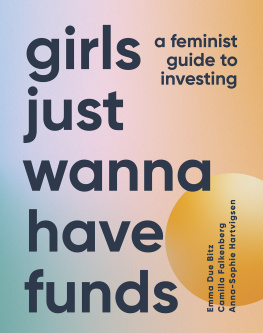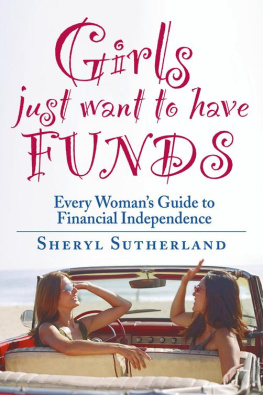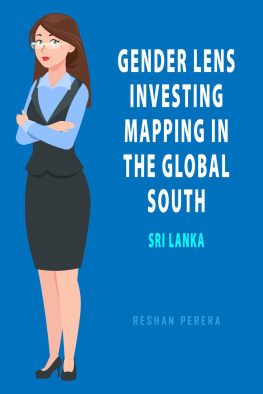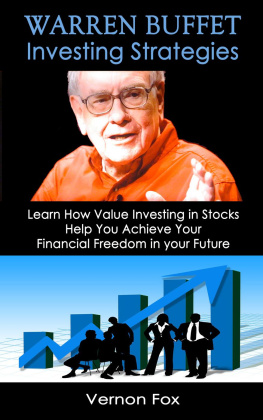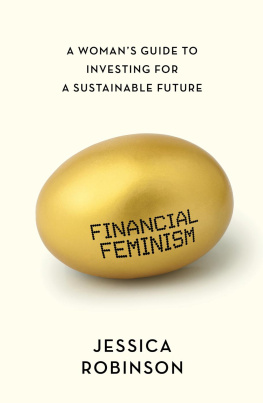
First published in 2021
Unbound
Level 1, Devonshire House, One Mayfair Place, London WIJ 8 AJ
www.unbound.com
All rights reserved
Jessica Robinson, 2021
The right of Jessica Robinson to be identified as the author of this work has been asserted in accordance with Section 77 of the Copyright, Designs and Patents Act, 1988. No part of this publication may be copied, reproduced, stored in a retrieval system, or transmitted, in any form or by any means without the prior permission of the publisher, nor be otherwise circulated in any form of binding or cover other than that in which it is published and without a similar condition being imposed on the subsequent purchaser.
The content in this book is the opinion of the author and is for general informational purposes only. It is not and in no way can be construed as professional advice. Should you need professional advice on your personal financial and investment situation, you should seek the counsel of a qualified investment professional.
Text design by PDQ Digital Media Solutions Ltd
A CIP record for this book is available from the British Library
ISBN 978-1-78352-952-0 (paperback)
ISBN 978-1-78352-953-7 (ebook)
Printed in Great Britain by CPI Group (UK)
To my beautiful and compassionate children, Thalia, Xiaoli and Zander, who know their only job in life is to make the world a better place than when they arrived
CONTENTS
PREFACE
Do you ever wake up with an overwhelming feeling that you are not doing enough? Do you ever fear that you are part of the actual problem? You are not alone.
We are watching the Amazon rainforest burn, millions of people struggle to survive because they are living in absolute poverty, children unable to get basic healthcare or go to school. Yet here I find myself, living a life of privilege, consuming what I want, taking more than I give. Its not sitting comfortably, not comfortably at all.
Yes, I have made some changes.
As a consumer, I do my best to buy local and Im about 80 per cent vegan. My household is as plastic free as possible, and by paying for recycling services I alleviate some of my daily guilt over the amount of trash we generate. As a mother, I preach the values of sustainability, of mindful consumption, of the importance of human rights for all people. My children could probably recite the United Nations 17 Sustainable Development Goals (please dont let me down, kids!).
I work as a strategic advisor to governments, think-tanks, institutional investors and companies, on all matters relating to sustainable finance and responsible investing. And I have done for many years. Yet, despite dedicating my career to this cause, I still feel that Im falling miserably short. Im sure there is a lot more that I can do. I know that I am not the only person, and certainly not the only woman, who feels this way.
So I guess thats what this book is. An ardent, urgent attempt to do more, to encourage us all to think about things differently, in an aspect of our lives that we especially women so easily overlook: MONEY. Im taking what I know about professionally and sharing what Im learning about personally, in the hope that it provides you with some guidance or support in your own journey. Come with me.
LETS GET PERSONAL
Ive been working in the field of sustainable finance and responsible investing for well over a decade, which is actually quite a long time given the nascency of this area. How did I end up there? Well, Id say I always cared deeply about social justice and equality. I had the good fortune of growing up in a family who held strong values around the importance of helping people in need, of thinking about the greater good. Intellectually that has always made sense to me and, as a student of economics and politics, Ive always been intensely interested in figuring out social systems that delivered for everyone, not just the small elite.
I entered the workforce at a time where fast fashion was becoming a thing (when it became not only affordable but also acceptable to buy an outfit for the weekend and then discard it) and people around me were getting crazily rich, crazily quick during the dot-com era. It was a strange time and I could already sense some internal conflict going on inside my twenty-something head.
However, it wasnt until I became a mother that I really started to see beyond the here and now. It was no longer about me, but about my childrens future. This also coincided with a move to Beijing, where environmental problems were just becoming visible to the masses. Air pollution was a real issue: wed wake up to unnaturally yellow skies and walking outside would leave our clothes smelling horribly sulphuric. I spent a small fortune on home air purifiers, scared of the damage being done to the lungs of my young babies.
And thats when it hit me here we were, consuming at breakneck speed, while we were quite literally poisoning ourselves because of it. What really scared me was that it seemed that very few people could see this, or perhaps they didnt want to. That may seem ridiculous given what we know now but, at the time, no one (or certainly no one in my world) seemed willing to acknowledge the problem and that frustrated the hell out of me. What happened then was a massive internal awakening. I wanted to change the world and I wanted to change it overnight.
Unfortunately, that didnt quite happen, but I went back to school to study environmental economics and started on a new journey professionally. I began to see how our financial markets were leading us down the wrong path. It became apparent that we were using money purely as an instrument for short-term gain. As I dug deeper into the whole notion of investing, I could see we were getting it all wrong.
Let me explain.
When you think about how investing is defined allocating money (or capital) to some kind of endeavour (whether its a company, a project or something else) with the hope of some future benefit you can see how this has been manipulated. We have been told that the only future benefit worth chasing is wait for it more money.
But what if we, as compassionate and caring humans, want to aim for something bigger? And what if future benefit actually means something quite beyond bigger financial returns, beyond more money? What if future benefit reflected our desire to move towards a world that is cleaner? Fairer? More equitable? Dare I say it, happier?
Thats how I got involved in sustainable finance and responsible investment. I was looking for ways to marry what I had learned in my earlier career as a management consultant in the financial services industry with my increasingly burning passion for all things related to sustainability. It became apparent to me that we needed to start asking questions about what money is, about what capital is deep and meaningful philosophical questions about what it represents to us as human beings in an increasingly crowded world where resources are no longer abundant, where our systems are clearly failing the majority of people.
THE WAY I SEE IT
I know Im not alone in wrestling with these deep questions, because in the last few years, I have seen such a rapid uptick in interest in the power of money and what it can do for the greater good. I mean, even the Financial Times now has a regular newsletter entitled Moral Money!Thats got to tell you something.

